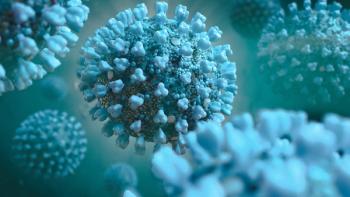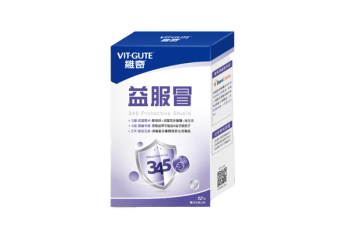
- Nutritional Outlook Vol. 17 No. 3
- Volume 17
- Issue 3
3 Top Immune-Health Ingredients (Prebiotics)
How do beta-glucans, arabinogalactan, and baker’s yeast really impact the immune system?
Promoting health by optimizing immune function is more complicated than just providing the body the nutrition it needs to function well. As immunologists continue to unravel the intricacies of the human immune system, the complexities continue to broaden. Estimates suggest that upwards of 70% of the human immune system resides in the gastrointestinal tract,1 pointing to the significance of healthy gut function in promoting immunity.
Moreover, our gastrointestinal tract is home to trillions of microorganisms, some beneficial and others harmful. A key to health is keeping these residents happy, healthy, and in balance. Thus, optimizing immune health requires an understanding of the interplay between the body’s largest immune organ (the gastrointestinal tract) and its population of microbes, in addition to ensuring that the body and the beneficial organisms are getting the nutrition needed to thrive.
It is in this light that the science of immunology is leading towards therapies that act on the primary factors involved in this dynamic interplay to attain health. This is why probiotics, prebiotics, and direct immune activators are at the forefront of this movement. Probiotics are healthy bacteria that colonize the intestinal tract to maintain its delicate microbial balance. Prebiotics are substances that support the growth of healthy bacteria preferentially to crowd out the less-healthy flora and promote digestive health by enhancing the production of beneficial short-chain fatty acids. And compounds that directly activate or modulate immune processes support health by optimizing multiple aspects of immune function.
Nutritional compounds can uniquely and holistically influence multiple factors of immune health. Several nutritional therapies have the ability to “communicate” with the immune system in both direct and indirect ways, meaning that they interact directly with immune structures while also impacting gut flora immune interactions via prebiotic activity. Three such compounds in particular are larch arabinogalactan (ResistAid), an ingredient from Lonza Ltd. (Switzerland), a dried yeast fermentate complex (EpiCor) from Embria Health Sciences (Ankeny, IA), and yeast-derived beta-glucan (Wellmune) from Biothera (Eagan, MN).
ResistAid
ResistAid is a water-soluble extract from larch trees containing the soluble fiber arabinogalactan and flavonoids with antioxidant activity. Clinical studies on ResistAid have shown its ability to support various facets of immune function. Studies have also investigated the prebiotic benefits of arabinogalactan. Using the SHIME (Simulator of the Human Intestinal Microbial Ecosystem) model-a dynamic in vitro model used to simulate the major compartments of the human digestive tract-researchers evaluated the effect of arabinogalactan (5 g/day for three weeks) on the composition and activity of the microbial environment.2 Arabinogalactan caused a beneficial increase in short-chain fatty acid production with a concomitant decrease in ammonium production, indicating its prebiotic potential. Arabinogalactan further promoted increases in healthy bacteria and decreases in pathogenic Clostridium perfringens.
Arabinogalactan, of course, also shows direct immune-supportive benefits. Linde Riede and colleagues in Berlin recently conducted a study assessing the ability of arabinogalactan (ResistAid) to prevent the common cold and reduce cold symptoms.3 This placebo-controlled clinical trial included 199 healthy adults with recurring upper respiratory tract infections (self-reported occurrence of three infections in the six months prior to enrollment). Participants were assigned to consume 4.5 g of arabinogalactan daily or a placebo for 12 weeks. Three assessments were performed during the study: at baseline, after 6 weeks, and at the end of 12 weeks. In addition, if a participant contracted a cold during the study, a visit occurred at the beginning and on the fifth day of each episode. Participants documented their symptoms for a 14-day period. In the 187 individuals included for analysis (12 were excluded due to significant deviations from protocol), the results indicated that significantly fewer participants in the arabinogalactan group contracted the cold compared to placebo (60% versus 74%). In addition, the percentage of symptom-free days in the treatment group was significantly higher than placebo.
Jay Udani of Medicus Research in Northridge, CA, assessed the immune-modulating activity of larch arabinogalactan (ResistAid) in healthy adults aged 18–61 years.4 This double-blind, placebo-controlled study in 75 individuals assessed the ability of two doses of larch arabinogalactan (1.5 g or 4.5 g/day) or placebo taken for 60 days to influence the immune response to a standardized antigenic challenge. On day 30 of the study, subjects were administered the influenza and tetanus vaccines. The serum response to the antigens was then measured on days 45 and 60 and compared to baseline antibody measurements. While neither treatment group demonstrated any significant elevations in antibodies to the flu vaccine compared to placebo, the participants in the group receiving 1.5 g of the arabinogalactan preparation saw a significant rise in tetanus antibodies versus placebo. No significant difference was noted in the higher-dose group, indicating that a low dose of larch arabinogalactan can augment the immune response to bacterial antigens.
EpiCor
EpiCor is a complex fermentation product from baker’s yeast containing antioxidants, protein, beta-glucans, fiber, polyphenols, vitamins, amino acids, and other metabolites. Several studies attest to EpiCor’s ability to modulate immune function. In a recent investigation led by Sam Possemiers from Ghent University in Belgium, EpiCor was studied using the SHIME model (described earlier) and found to have a prebiotic-like effect on gastrointestinal flora.5 Changes observed included alterations in general flora profile, reduction of pathogenic strains, and increased levels of healthy Lactobacilli and Bifidobacteria. Researchers observed an increase in butyrate production and a significant decrease in pro-inflammatory cytokines.
Clinical studies support EpiCor’s ability to promote a healthy immune response in humans. Mark Moyad, the director of preventive and complementary medicine at the University of Michigan Medical Center, led a study investigating the effects of EpiCor on allergies and allergic rhinitis.6 This 12-week, placebo-controlled trial included 96 healthy subjects with a documented history of seasonal allergies and allergic rhinitis. The subjects received 500 mg of EpiCor daily or a placebo. Participants were examined at baseline and then followed up at 6 and 12 weeks. EpiCor administration significantly reduced the severity of allergic rhinitis symptoms, specifically nasal congestion and runny nose. The EpiCor group experienced 12.5 fewer days of nasal congestion compared to the placebo group and had significantly elevated salivary IgA levels (an antibody associated with enhanced mucosal immunity).
An additional 12-week study also led by Mark Moyad looked at the impact of EpiCor on cold and flu symptoms in 116 individuals with no recent history of receiving the seasonal influenza vaccine.7 Study participants were between the ages of 18 and 76 in good general health. The study was conducted during prime cold and flu season (January through March). Individuals were examined at baseline and then again at 6 and 12 weeks, and were asked to record cold or flu-like symptoms in a standardized diary. EpiCor (500 mg daily) significantly reduced the incidence of cold or flu-like symptoms compared to placebo, while non-significant decreases were noted for duration of illness compared to placebo, indicating its benefit for immune function.
While both of the above studies examined the benefits of EpiCor with sustained use, Gitte Jensen’s group at NIS Labs in Klamath Falls, OR, assessed the acute and rapid immune-modulating effects in a clinical trial with a crossover design.8 This double-blind, placebo-controlled pilot study consisted of 12 healthy subjects aged 18–54. EpiCor (500 mg) or placebo was administered on an acute basis, and measurements in the 12 subjects were taken at least two weeks apart (the washout period). At each of the two sessions, serum assessments were conducted before, and at 1 and 2 hours after, administration of the treatment for cytokines, immune cell subsets, activation status of circulating natural killer (NK) and T cells, and antioxidant protection capacity. Compared with placebo, the investigators found rapid changes in serum antioxidant status, cytokine levels, and immune surveillance capacity after the single dose of EpiCor. Moreover, the changes observed in specific lymphocyte subsets indicated a modulatory effect of EpiCor on circulating T and NK cells. The findings of this study highlight the rapid onset of EpiCor’s benefits.
Wellmune
Wellmune consists of β-1,3/1,6-glucan derived from a purified proprietary strain of baker’s yeast. Beta-glucans are a class of long-chain glucose molecules present in grains, yeast, mushrooms, and seaweed that have a backbone structure consisting of β-(1-3)-linked β-D-glucopyranosyl units with primarily β-(1,4)- or (1,6)-linked side chains. Yeast beta-glucans are of the β-1,3/1,6 configuration. Ka-Lung Lam and Peter Chi-Keung Cheung at The Chinese University of Hong Kong authored an extensive review in which they highlight the prebiotic potential of beta-glucan from various sources,9 and suggest that these compounds could be unique contributors to gut health in addition to their immune-health benefits.
Yeast beta-glucans have a long history of research for immune support dating back several decades. A few recent studies highlighted here attest to their powerful immune-enhancement potential. Two recent studies in particular led by Shawn Talbott of GLH Nutrition in Draper, UT, assessed the immune-enhancing effects of Wellmune. In the first study, 77 healthy women with an average age of 38 and moderate levels of psychological stress were administered the beta-glucan supplement (250 mg daily) or a placebo for 12 weeks to reduce the incidence of cold and flu symptoms.10 The participants consuming Wellmune had fewer upper respiratory symptoms compared to placebo. Additionally, individuals in the Wellmune group reported better overall mood and superior mental and physical energy levels. The results indicated that daily use of the supplement supported immune health in the face of daily stressors.
The second study looked at the impact of Wellmune in ragweed allergy sufferers. This randomized placebo-controlled study included 48 participants with a mean age of 36.11 Serum IgE concentrations (an antibody associated with allergies), allergy symptoms, quality of life measures, mood, and physical function were assessed at baseline and again after four weeks of daily administration of Wellmune (250 mg) or placebo. When compared to placebo, Wellmune reduced total allergy symptoms and symptom severity, including nasal symptoms, eye symptoms, and non-nasal symptoms, but had no effect on serum IgE concentrations. Additionally, participants in the treatment group reported increased physical health, energy, and emotional well-being compared to participants in the placebo group.
A recent study evaluated the ability of yeast beta-glucan to support mucosal immunity and prevent upper respiratory infections after strenuous exercise. Strenuous activities are known to suppress mucosal immunity for up to 24 hours, during which the body is more vulnerable to developing upper respiratory infections. Led by Brian McFarlin from the University of North Texas, this two-part study looked at whether yeast beta-glucan (Wellmune) could positively impact immune function in individuals undergoing intense exercise.12
The first study included 182 men and women post-marathon and investigated beta-glucan’s (250 mg/day) ability compared to placebo to prevent upper respiratory infection symptoms for 28 days. The results of the study indicated that those supplementing with beta-glucan had a 37% reduction in the number of days with upper respiratory symptoms compared to placebo. In the second study including 60 men and women, yeast beta-glucan (250 mg/day) or placebo was administered for 10 days prior to undergoing a 50-minute-long strenuous cycling task. At two hours post-exercise, salivary IgA levels were increased by 32% compared to placebo, indicating the ability of the supplement to enhance mucosal immunity after vigorous exercise.
Enhancing immune vigilance requires addressing the multiple factors that influence immune health. These include the structural integrity of the gut barrier, direct support of immune processes, and supporting a healthy balance of microbial flora. Using nutritional compounds that influence these three major areas can holistically help ensure the immune system functions at peak levels.
References
- Vighi G et al., “Allergy and the gastrointestinal system,” Clinical & Experimental Immunology, vol. 153 (Suppl 1) (September 2008): 3–6.
- Terpend K et al., “Arabinogalactan and fructo-oligosaccharides have a different fermentation profile in the Simulator of the Human Intestinal Microbial Ecosystem (SHIME®),” Environmental Microbiology Reports, vol. 5, no. 4 (August 2013): 595–603.
- Riede L et al., “Larch arabinogalactan effects on reducing incidence of upper respiratory infections,” Current Medical Research and Opinion, vol. 29, no. 3 (March 2013): 251–258.
- Udani JK, “Immunomodulatory effects of ResistAid™: A randomized, double-blind, placebo-controlled, multidose study,” Journal of the American College of Nutrition, vol. 32, no. 5 (2013): 331–338.
- Possemiers S et al., “A dried yeast fermentate selectively modulates both the luminal and mucosal gut microbiota and protects against inflammation, as studied in an integrated in vitro approach,” Journal of Agricultural and Food Chemistry, vol. 61, no. 39 (October 2, 2103): 9380–9392.
- Moyad MA et al., “Immunogenic yeast-based fermentation product reduces allergic rhinitis-induced nasal congestion: a randomized, double-blind, placebo-controlled trial,” Advances in Therapy, vol. 26, no. 8 (August 2009): 795–804.
- Moyad MA et al., “Immunogenic yeast-based fermentate for cold/flu-like symptoms in nonvaccinated individuals,” Journal of Alternative and Complementary Medicine, vol. 16, no. 2 (February 2010): 213–218.
- Jensen GS et al., “Antioxidant bioavailability and rapid immune-modulating effects after consumption of a single acute dose of a high-metabolite yeast immunogen: results of a placebo-controlled double-blinded crossover pilot study,” Journal of Medicinal Food, vol. 14, no. 9 (September 2011): 1002–1010.
- Lam KL et al., “Non-digestible long chain beta-glucans as novel prebiotics,” Bioactive Carbohydrates and Dietary Fibre, vol. 2, no. 1 (July 2013): 45–64.
- Talbott SM et al., “Baker’s yeast beta-glucan supplement reduces upper respiratory symptoms and improves mood state in stressed women,” Journal of the American College of Nutrition, vol. 31, no. 4 (August 2012): 295–300.
- Talbott S et al., “β-Glucan supplementation, allergy symptoms, and quality of life in self-described ragweed allergy sufferers,” Food Science & Nutrition, vol. 1, no. 1 (January 2013): 90–101.
- McFarlin BK et al., “Baker’s yeast beta glucan supplementation increases salivary IgA and decreases cold/flu symptomatic days after intense exercise,” Journal of Dietary Supplements, vol. 10, no. 3 (September 2013): 171–183
Articles in this issue
over 11 years ago
Brain-Health Food Marketers Are Missing the Senior Channelalmost 12 years ago
How Halal Certification Can Help Boost Your Dietary Supplements Businessalmost 12 years ago
Are Collagen Nutricosmetics More Effective than Topical Collagen?almost 12 years ago
Are Calcium Supplements Bad for the Heart?almost 12 years ago
Ingredient Spotlight: Honey Powderalmost 12 years ago
Glucosamine: Still Standing Strong?almost 12 years ago
Quinoa Forms: Powders, Puffs, and Morealmost 12 years ago
GMO-Labeling Laws: Why the Trigger Clause?almost 12 years ago
Black Chokeberries Are Returning to North Americaalmost 12 years ago
Moringa May Be an Attractive Soap IngredientNewsletter
From ingredient science to consumer trends, get the intel you need to stay competitive in the nutrition space—subscribe now to Nutritional Outlook.




